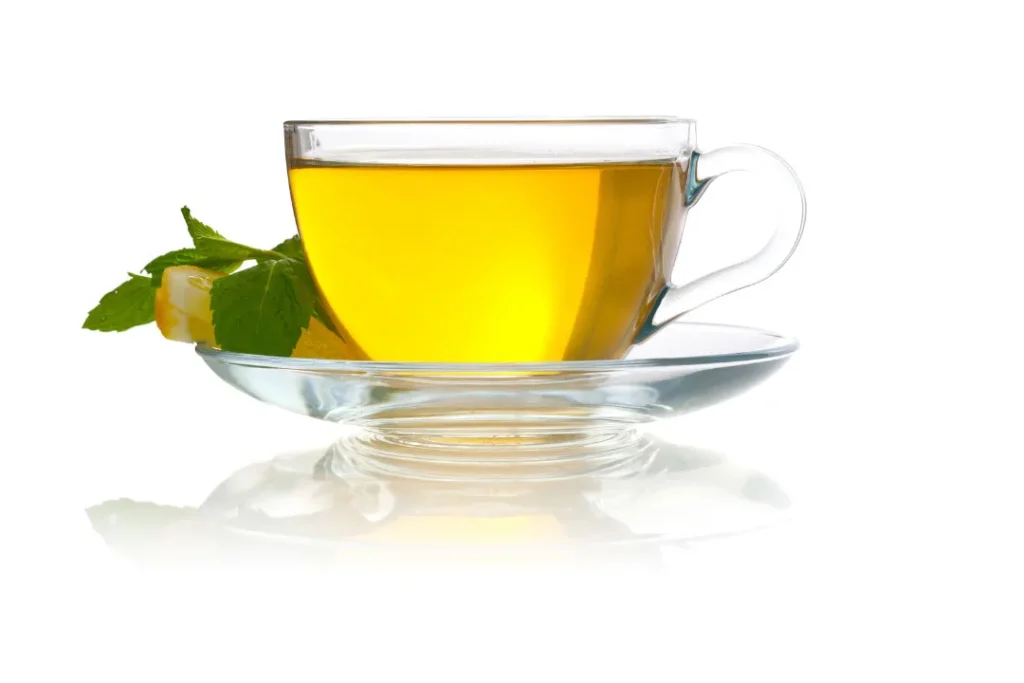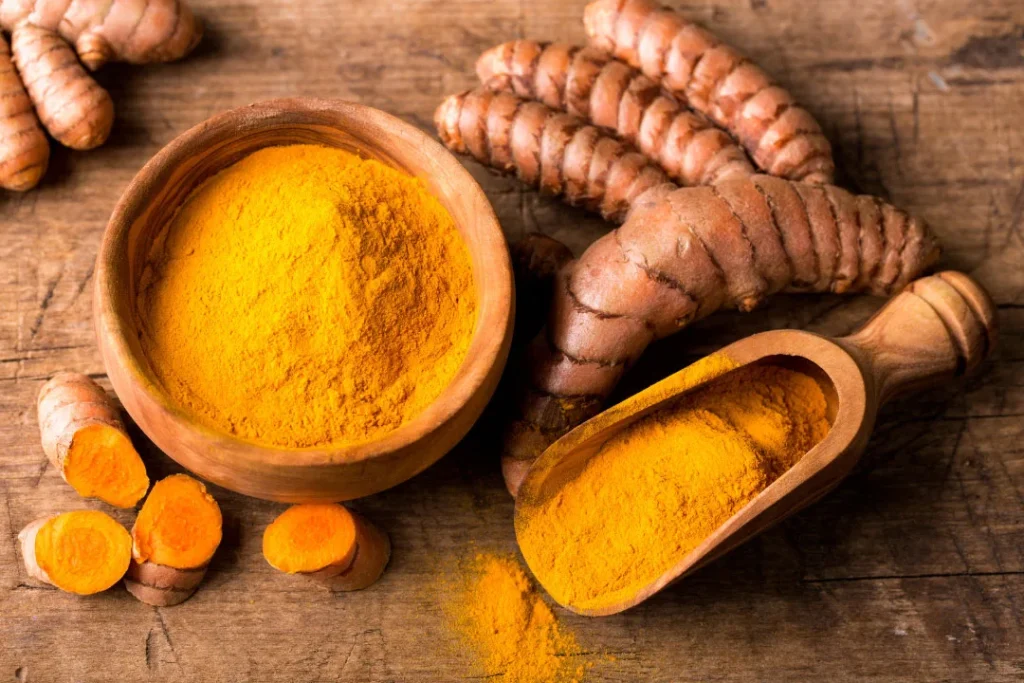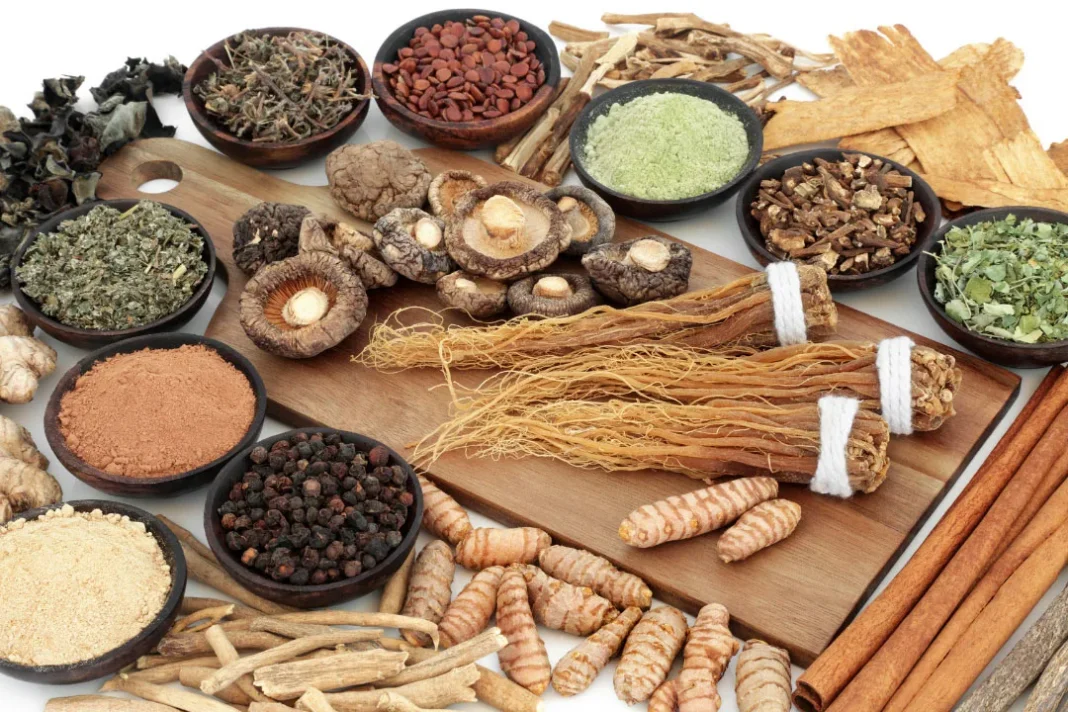Adaptogens are defined by their capacity to balance the body’s response to stress, and they can have a powerful impact on your overall well-being. We’ll discuss five great adaptogenic foods and their benefits.
You may have heard the buzz regarding adaptogens in recent years. While adaptogens have been used for centuries in Ayurvedic medicine, these herbs and plants have recently become highly coveted in the western world. Some attest that this surge is due to an increase in psychological distress post-COVID-19 pandemic. In the surge of consumption, the definition of these substances as well as their intended and studied benefits have become muddled. We will discuss the true meaning of ‘adaptogenic’ and discuss five adaptogenic foods that may have promising benefits for your health.
5 Great Adaptogenic Foods and Their Benefits is an original (PlantBasedHealthNews) article.
What are adaptogenic foods?
As adaptogenic foods rise in popularity, people have begun to market them for an array of health benefits: anti-inflammation, heart health, beauty, etc. There is no standardized medical definition for adaptogens. However, the most common definition is a substance that returns your body to a balanced state when you are introduced to physiological and psychological stressors.
Adaptogens appear to affect the hypothalamic pituitary adrenal axis (HPA) by decreasing and normalizing cortisol, a hormone that is released during times of stress. When cortisol levels rise, you experience the “fight-or-flight” response, which stimulates your sympathetic nervous system and adrenal glands. Adaptogens are components that can help the body to overcome these responses and protect against the long-term negative effects of perpetual cortisol increases.
Human studies concerning many of these compounds are lacking, although many promising animal studies are present. As the popularity of these products increases, further research can help us understand more. Below is a list of five adaptogenic foods that may help lower your cortisol levels and therefore help your body become more resistant to stress.
Adaptogenic foods:
#1 Ashwagandha
Ashwagandha is a form of Indian ginseng that has been studied for decades regarding its effect on cortisol and stress. In one animal study, this root prevented weight increase of the adrenal glands (a sign of chronic stress) and helped stabilize cortisol levels. In a double-blind, randomized, controlled trial it was found that ashwagandha effectively improved stress resistance.

Adaptogenic foods:
#2 Green tea
The substance L-theanine, an amino acid derived from green tea, is considered a plausible adaptogen due to its ability to reduce cortisol levels and stressors. In some studies, it has been correlated with improving physiological markers of stress responses and the suppression of psychosocial stress. In one animal study, matcha green tea was linked with the stress-reducing functions of adaptogens.

Adaptogenic foods:
#3 Rhodiola
Rhodiola is an herb usually found in arctic areas that has been used as a stimulant for the nervous system for centuries. In one human study, rhodiola was concluded to have an anti-fatigue effect on cognitive performance. It also helped to decrease cortisol responses to stress in burnout patients. Two other studies revealed promising evidence of rhodiola’s effect on stress, including its influence over the release of stress hormones and its ability to manage various aspects of stress-induced conditions.
Adaptogenic foods:
#4 Turmeric
Turmeric is a plant native to Southeast Asia that is commonly known for its use as a spicy culinary additive, although it has been employed medicinally throughout history. Turmeric contains the compound curcumin, which has been shown to modulate the HPA axis in rats and reverse the effects of chronic stress on behavior. Although further research is needed to determine if the same will be true for humans, this study suggests the effectiveness of turmeric in reducing stress.

Adaptogenic foods:
#5 Chlorella
Chlorella is a nutrient-dense, green algae plant that is grown in freshwater. This plant has recently been coined a superfood due to its abundance of nutrients. Additional research would be beneficial to understand its adaptogenic potential. Chlorella has been considered a biological response modifier. In one study, chlorella was observed to help diminish the impact of stressors by reducing the HPA response of rats. While more research is necessary to be certain these benefits will extend to humans, chlorella’s role as an adaptogenic is further justified.
Adaptogenic foods
The growth of the adaptogens market has led to a rise in product innovation, resulting in many adaptogenic supplements. These products often combine various broken-down adaptogenic foods and pack a synergistic punch with their diversified ingredients. Unfortunately, many of these powders include added sugars and chemicals, failing consumers who desire a natural and healthy product.
One adaptogenic superfood powder that does not contain these unnecessary additives is the Organic Go Green Energy Blend by Healthy Truth. This powdered supplement contains no added sugars or additives, only consisting of 100% plant-based and organic whole foods. The formula contains many adaptogenic ingredients, including matcha green tea, chlorella, and turmeric.
The company was founded in 2014 by lawyer Bruce Namenson who saw a need for nutritional foods without added preservatives and sugar. In an interview, Namenson discusses how many people do not understand the difference between ultra-clean and natural foods. Ultra-clean products, like those produced by Healthy Truth, do not contain the harmful ingredients that may still be present in some foods categorized as “natural.” Namenson’s ultra-clean company was started in his kitchen and now has expanded to a whole line of products.
In the newfound over-saturation of the adaptogenic food market, it is hard to discern the true nature of adaptogens and their benefits. Difficulty also arises in finding a whole food product that incorporates well-studied adaptogens, like ashwagandha, L-theanine, and turmeric, without additives. As the adaptogen movement gains momentum, additional human research will hopefully formalize the multitude of benefits these medicinal plants have offered people for centuries.

Further Reading for Additional Reference:
Cleveland Clinic: “What are adaptogens and are they healthy?“
Mayo Clinic: “Chronic stress puts your health at risk”
Important Note: The information contained in this article is for general informational purposes only,
and should not be construed as health or medical advice, nor is it intended to diagnose, prevent, treat, or cure any disease or health condition. Before embarking on any diet, fitness regimen, or program of nutritional supplementation, it is advisable to consult your healthcare professional in order to determine its safety and probable efficacy in terms of your individual state of health.
Regarding Nutritional Supplements Or Other Non-Prescription Health Products: If any nutritional supplements or other non-prescription health products are mentioned in the foregoing article, any claims or statements made about them have not been evaluated by the U.S. Food and Drug Administration, and such nutritional supplements or other health products are not intended to diagnose, treat, cure, or prevent any disease.
